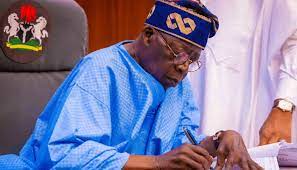As Nigeria continues its journey toward economic growth and development, it is essential for policymakers to address the issue of the minimum wage. The current minimum wage in the country falls far short of meeting the basic needs of the Nigerian workforce, resulting in a multitude of social and economic challenges. It is high time for the government to take bold steps in raising the minimum wage to ensure a fair and just society for all citizens.
The current minimum wage in Nigeria, last revised in 2019, stands at N30,000 ($73) per month. This amount is woefully inadequate in the face of rising inflation, soaring living costs, and the economic challenges posed by the COVID-19 pandemic. Many workers are struggling to make ends meet, leaving them trapped in a cycle of poverty with limited opportunities to break free.
Raising the minimum wage is not merely an act of economic goodwill; it is an investment in the welfare of the Nigerian people and the nation’s progress. Adequate wages not only empower workers to meet their basic needs but also boost overall productivity and economic growth. When workers earn a decent wage, they are more motivated, leading to increased efficiency, reduced turnover rates, and a more loyal and committed workforce.
Moreover, a higher minimum wage will alleviate income inequality and reduce the growing wealth gap in the country. The current disparity between the minimum wage and the exorbitant salaries of some public officials and corporate executives is a glaring symbol of social injustice. By ensuring a fair wage for all, Nigeria can move towards a more equitable society, where every citizen has an opportunity to improve their quality of life.
Critics of raising the minimum wage often cite concerns over its potential impact on businesses and the potential for job losses. However, research and experience from other countries have shown that such fears are largely unfounded. A well-calibrated minimum wage increase can stimulate consumer spending, boost domestic demand, and drive economic growth. Additionally, businesses that pay higher wages often benefit from a more skilled and motivated workforce, leading to enhanced productivity and competitiveness.
To address the concerns of businesses, the government can implement policies such as tax incentives, subsidies, and support programs to help ease the burden on employers. By fostering a collaborative approach, we can ensure that both workers and businesses thrive in an economically vibrant Nigeria.
The responsibility of implementing a new minimum wage does not rest solely with the government. Private sector employers must also recognise their role in creating a fair and just society. Ethical businesses should view higher wages as an investment in their workforce and the long-term prosperity of the nation.
The case for raising Nigeria’s minimum wage is compelling. It is not just an economic issue; it is a matter of social justice and nation-building. A higher minimum wage will empower workers, reduce income inequality, stimulate economic growth, and pave the way for a more prosperous and equitable Nigeria.
As we embark on this journey towards a brighter future, let us prioritise the well-being of our people and work together to create a more inclusive and prosperous society. By raising the minimum wage, Nigeria can take a significant step forward in its quest for economic progress and social justice. The time to act is now, and the benefits will be felt for generations to come.





